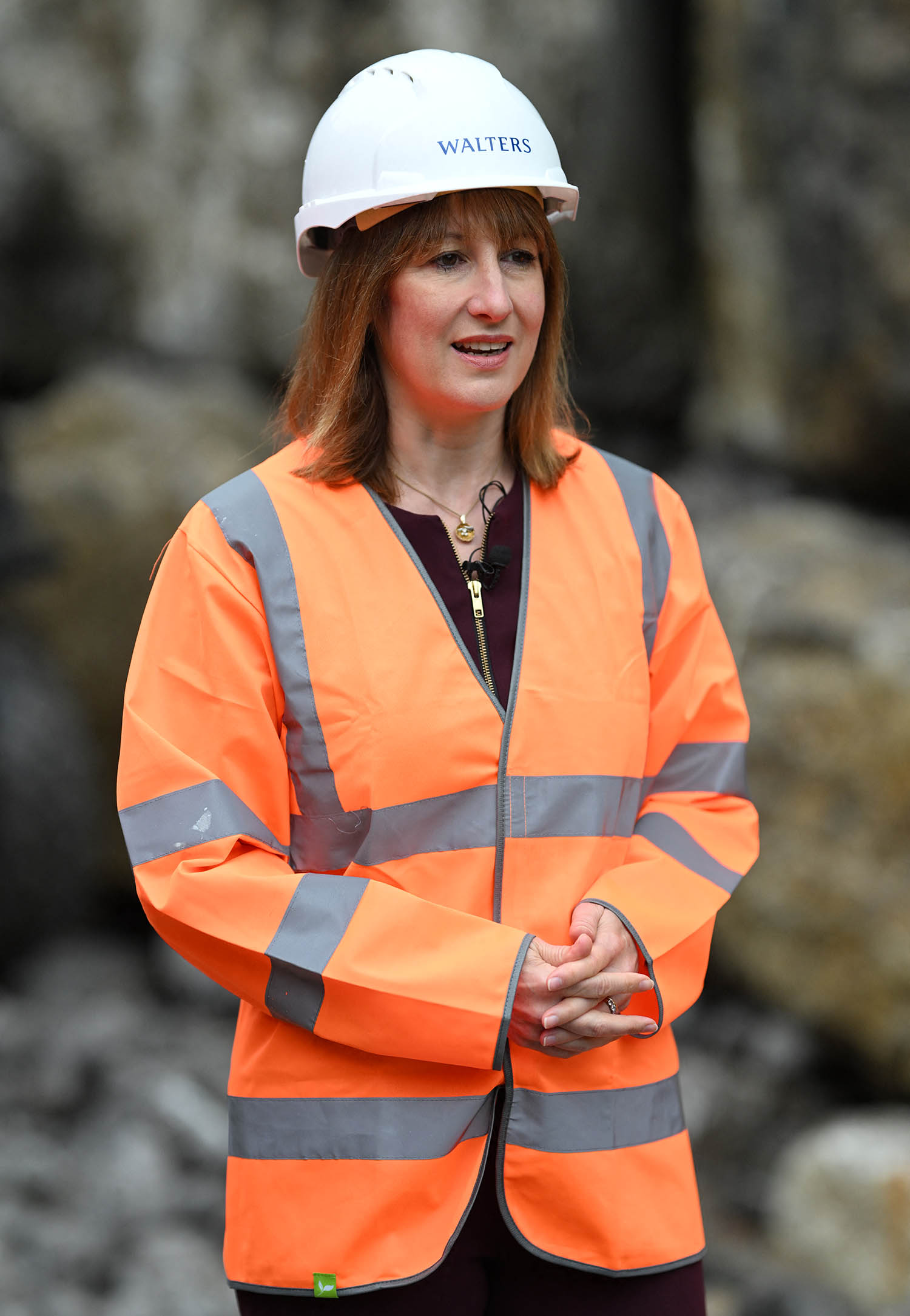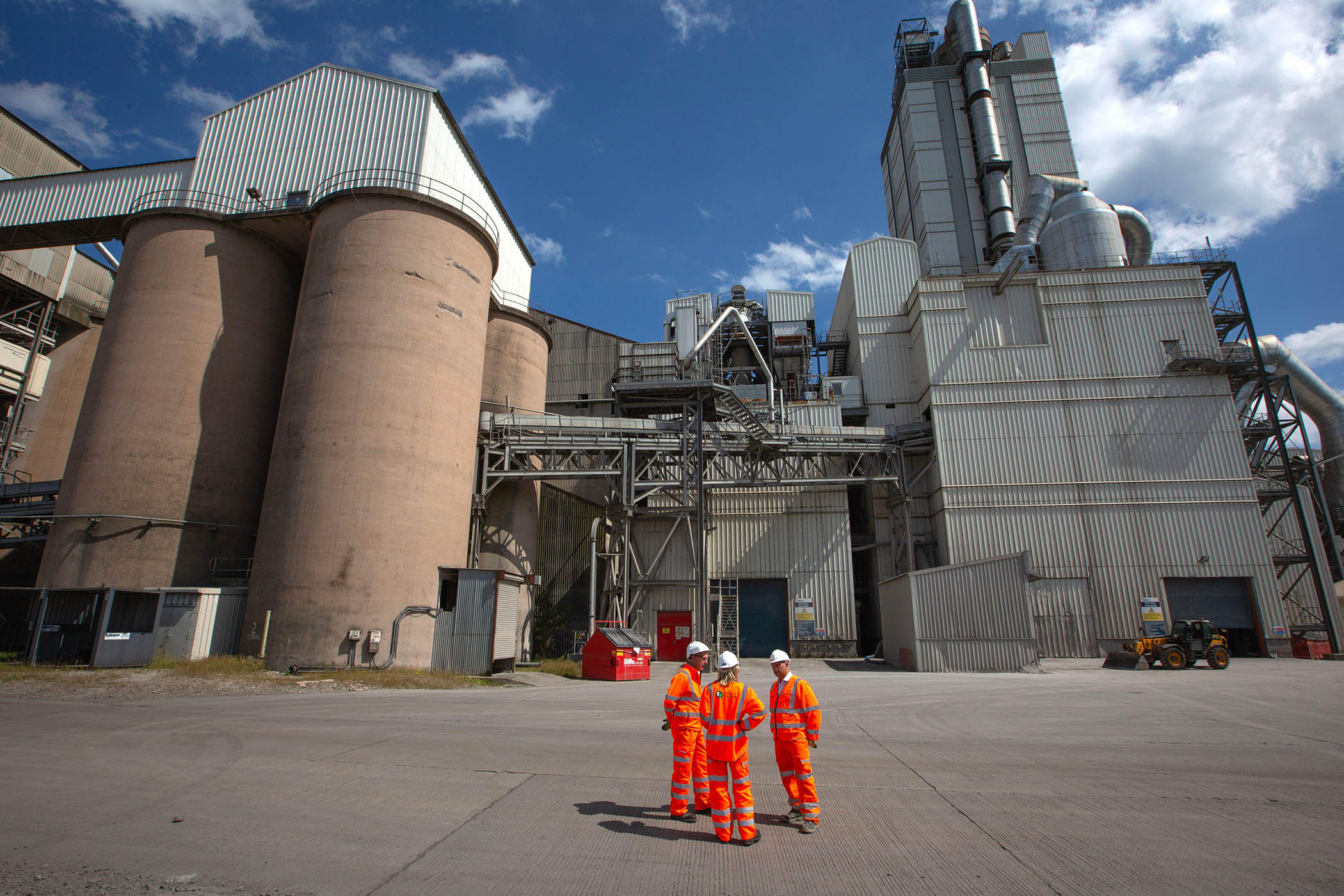When Rachel Reeves visited a heat pump manufacturer in Truro this summer, she posed for selfies with the team and described the business as crucial to transforming Britain into a “clean energy superpower”.
The company Kensa, last month announced redundancies for up to a fifth of its workforce, blaming “policy instability and market uncertainty.” It was a second round, following a 20% cut last year.
As political consensus over net zero breaks down, it’s a bewildering time to be a green business in Britain. Reform has threatened to strike down contracts awarded under the latest auction round for renewable energy developers, while the Conservatives plan to scrap climate change legislation.
Meanwhile, high energy prices and uncertainty over Labour’s green policies are rattling companies, prompting job cuts and a slow-down in investment.
BMW has delayed plans to produce the all-electric Mini at its Oxford plant, citing “multiple uncertainties facing the automotive industry” and job losses at ceramics companies in Stoke-on-Trent have been blamed on high energy costs.

Rachel Reeves wants the UK to become a clean energy superpower
On the face of it, the adoption of clean technology looks rapid. Heat pump sales rose more than 60% year on year to around 98,000 in 2024, and EV sales reached a record high of over 380,000 cars, around a fifth of new car sales last year.
But behind the headline numbers there is disquiet about the pace of decarbonisation, given the scale of the change needed to shift the UK economy away from fossil fuels – the figures for heat pumps account for 6% of the overall boiler market and are a long way short of the official target set under the last government of 600,000 installations a year by 2028.
Both for industry and households, the UK has some of the highest electricity prices in the world. At consumer level, high power prices are a deterrent to installing heat pumps and shifting from petrol and diesel cars to EVs.
One energy company executive said the government’s plan for 95% clean power by 2030 was slowing the transition by setting an artificially high target for ramping up the supply of renewables in a narrow window of time.
Instead, they said, the emphasis should be on bringing power prices down to encourage people to switch to clean tech: “If every single decision the government made was about lowering the prices of electricity, we would have decarbonised faster.”
Newsletters
Choose the newsletters you want to receive
View more
For information about how The Observer protects your data, read our Privacy Policy
Analysts and energy industry executives say the government has dodged reforms of the market that might bring prices down.
In July, ministers decided against “zonal pricing”, which would have varied prices so that people in windier parts of the country, such as Scotland, got cheaper power. Supporters of the reform argued that it would lower costs overall, as it would reduce the expenses of balancing the system – such as switching wind turbines off in Scotland when they produce more energy than the grid can transmit south. The government said it would focus instead on reforms to make the power system more efficient.
Critics have also focused on the UK’s “marginal pricing” system, where the cost of power is set by the most expensive source needed to meet total demand – mostly gas-fired power plants. In January, the owners of two gas-fired power stations were paid £17m for a few hours of power in a cold snap.
A report commissioned by Greenpeace UK has suggested that nationalising gas plants would create a strategic reserve of energy at an agreed price, while bringing average household bills down by £65 a year.
Alongside allowing gas to set the overall price, green levies added to bills also keep Britain’s power prices high. These levies make up 16% of the final price of electricity, and add about £140 a year to electricity bills.
Richard Lowes, a specialist in energy policy at the Regulatory Assistance Project, a thinktank, said: “The government has walked away from zonal pricing. Decoupling from gas isn’t happening any time soon.
“There are historical levies that are being paid for through bills, such as feed-in tariffs – paying people to put solar panels on roofs – where the market has got going but we have a legacy cost on bills. All of this upward cost pressure on electricity means it is not a particularly inviting investment environment.”
‘There is a real risk technology won’t properly kick-start in the UK at scale, before we have a rise in imports from China’
‘There is a real risk technology won’t properly kick-start in the UK at scale, before we have a rise in imports from China’
Anna Krajinska, Transport & Environment thinktank
Delays in introducing net zero policies have also chilled investment. In its statement announcing redundancies, Kensa criticised the “continued wait for the future homes standard” – a policy that means new homes will no longer be connected to fossil fuel-powered heating systems. The last government said the future homes standard would come into force in 2025, but it is now unlikely to happen until 2026. The previous government had also planned to ban the sale of new gas boilers by 2035, but weakened the plan – and this government has dropped it.
A spokesman for Kensa said: “Kensa had invested in its heat pump manufacturing capacity in recent years and had ambitions for further expansion, including a second factory. But delays and changes in heat policy have, unfortunately, meant pausing those plans and even reducing our workforce.”
In transport, the single largest emitting sector, the government has softened its position in the face of lobbying by the car industry, relaxing the rules in April to allow hybrid cars to be sold until 2035 – five years later than first scheduled.
Anna Krajinska, UK director of the thinktank Transport & Environment, said: “Any slowdown in R&D [affects] the UK’s and Europe’s ability to compete globally. Global markets are going electric very fast.”
The unravelling of the political consensus on net zero is also slowing the transition, Krajinska said. “As soon as we saw the shift in politics, business very quickly shifted positioning from being very [in favour of] ambitious uptake to pushing back against regulation.”
She said: “[The transport sector] is exploiting Labour’s need to deliver growth and jobs on a rapid timescale – they are using the narrative that the transition is going to cost jobs in some of the most deprived areas of the UK, some of the most likely to vote Reform.”
While the EU has introduced binding emissions targets for heavy goods vehicles, there is still no zero emissions mandate for HGVs in the UK. Krajinska said: “There is a real risk that production of that technology won’t properly kick-start in the UK at scale, before we have a significant rise in imports from China. We are now in a race to scale up this technology.”

Building materials firm Heidelberg has signed a contract for a carbon capture project in north Wales
There are pockets of good news. Among them, the fact that the building materials company Heidelberg has signed a contract with the government for a carbon capture project in Padeswood, north Wales, to produce cement, while capturing the associated emissions – though this is driven by taxpayer’s cash. The Padeswood plant falls under £9.4bn announced for carbon capture in the government’s spending review in June.
In aviation, a mandate set in place under the Conservatives and maintained under Labour, increases the quantity of sustainable aviation fuel in the overall mix of UK jet fuel demand, and has provided certainty for businesses.
Mahesh Roy, programme director for sustainable aviation fuel (SAF)at the Green Finance Institute, said: “There’s quite a strong signal being sent by government. As a result there are dozens of [SAF] developers, many of them with a pathway to getting a final investment decision.”
Among business leaders, criticism of Labour is more widespread than anxiety about the prospect of a Reform government. While the latter has threatened to rip up contracts guaranteeing a minimum price for low carbon energy, developers point out these are legally binding agreements. Some welcome the growing discord between parties as the shattering of a false consensus, allowing a franker debate about the costs of the energy transition.
Ed Hezlet, energy analyst at the Centre for British Progress, said: “If you have set out your stall on assuming legislation gets tighter over the next 20 years and you are favourably exposed, that [breakdown of consensus] is unhelpful. But if you are more energy-intensive, it may be positive if there’s more cost focus coming in.”
Now it’s the chancellor’s move. In recent weeks, ministers have hinted at measures in the budget to reduce energy costs – from cutting the 5% VAT rate on energy bills to slashing green levies. A government spokesperson said that “lowering bills is central to every decision we make,” and that it’s “bringing down the cost of clean technologies to ensure households can make the most of cheaper, secure power now”.
If Britain is to electrify home heating and transport, moving beyond the most eco-conscious consumers to those who are swayed mainly by price, industry insiders say a bold move can’t come soon enough. If Britain is to electrify home heating and transport, moving beyond the most eco-conscious consumers to those who are swayed mainly by price, industry insiders say a bold move can’t come soon enough.
Photograph by Justin Padget, Matthew Horwood/Pool/AFP via Getty Images, Colin McPherson / Alamy



